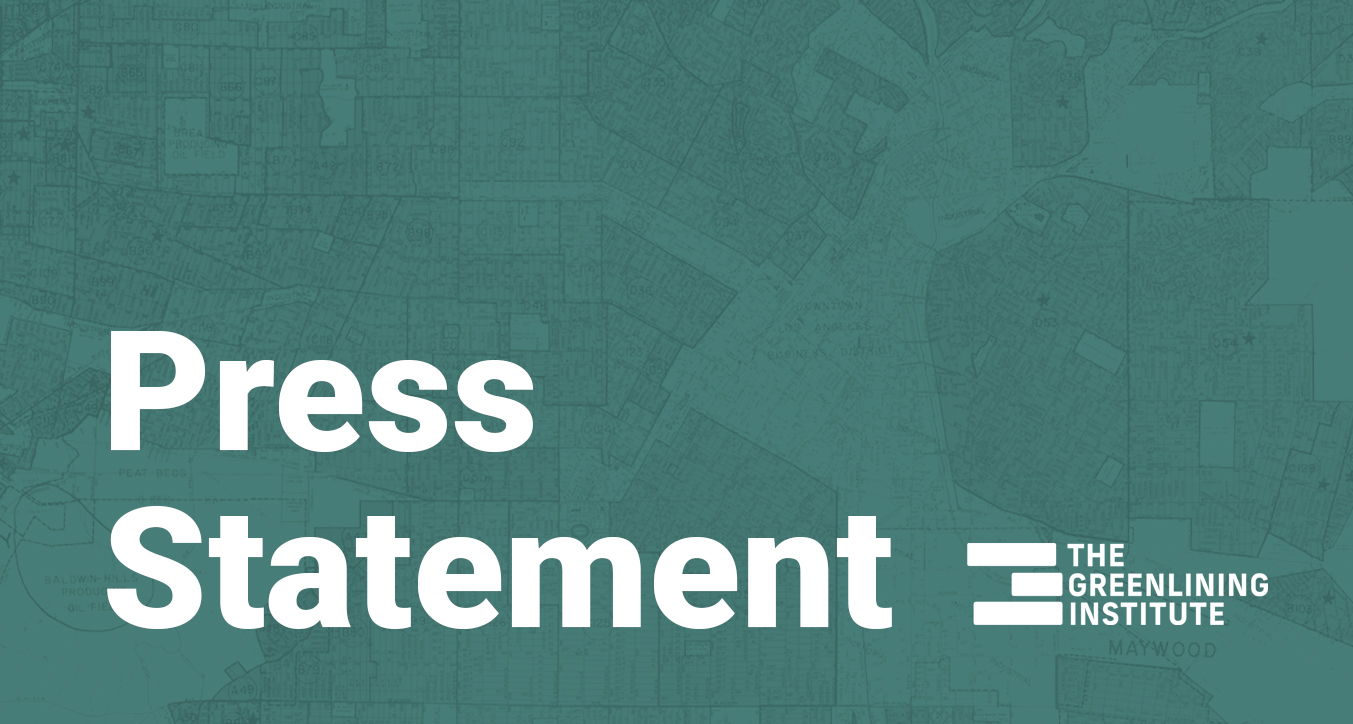Bill to Maximize Clean Energy Benefits Passes First Committee

Media Contact
Danielle Bell
SENIOR PROGRAM MANAGER FOR MEDIA RELATIONS
media@greenlining.org danielle.bell@greenlining.orgAB 961 Directs CPUC to Consider Benefits Like Cleaner Air, Improved Health, Jobs for Underserved Communities
Contact: Bruce Mirken, Greenlining Institute Media Relations Director, 510-926-4022 (office), 415-846-7758 (cell)
SACRAMENTO — Today the Assembly Committee on Utilities and Energy passed AB 961, which would require the California Public Utilities Commission to consider “non-energy benefits” – impacts like job creation and improved public health – when evaluating clean energy projects. The bill is sponsored by The Greenlining Institute and backed by a broad array of environmental justice groups, solar developers, environmental groups, and progressive nonprofits.
“California leads the nation in clean energy innovation, but the benefits too often don’t reach low-income communities of color because the Public Utilities Commission never measured how these projects cut pollution, improve community health and boost the economies of underserved communities,” said Greenlining Institute Energy Equity Legal Counsel Madeline Stano. “What gets measured gets done, and this bill will make sure that officials look at the whole picture when they evaluate clean energy projects.”
“Energy efficiency programs have the potential to deliver so many benefits to local communities, especially communities that bear a disproportionate environmental and economic burden,” said Jodi Pincus, Executive Director of the Rising Sun Center for Opportunity. “We’re doing those communities a disservice if we only count the energy benefits and dismiss things like safety, affordability and workforce development.”
“California’s clean energy investments in social and environmental justice communities are highly impactful in providing broad benefits, including increased health and safety, increased resiliency, new economic opportunities, and reduced energy burden for low-income families,” said Stanley Greschner, Chief Policy and Business Development Officer of GRID Alternatives. “AB 961 ensures these societal benefits will be quantified and measured over time. Doing otherwise, California is selling itself short when it comes to measuring the success of its clean energy investments.”
AB 961 formalizes a recommendation in the California Energy Commission’s unanimously adopted SB 350 Low-Income Barriers Study that the state establish common definitions of “non-energy benefits,” develop standards to measure them, and prioritize projects that promote them in environmental justice communities, the communities that suffer from the worst pollution and economic stagnation.
The bill now moves to the Assembly Appropriations Committee.
For further background on AB 961, see Madeline Stano’s recent blog post.


